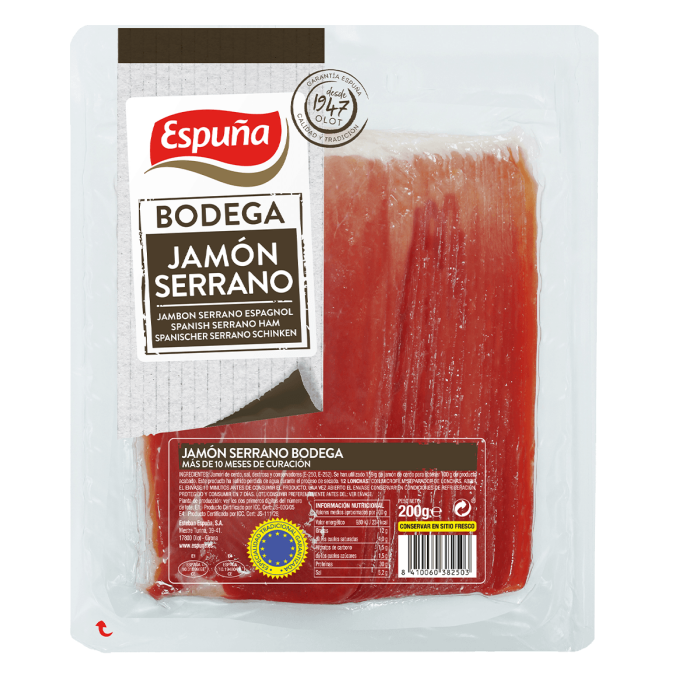Serrano Ham

|
|
Description
Serrano ham is a traditional Spanish dry-cured ham made from the hind leg of white pigs, known for its subtle flavor and often aged for a minimum of 12 months. The name "Serrano" comes from the Spanish word for "mountain" (sierra), referencing the high-altitude regions where it was traditionally cured in cooler air. This air-drying and slow-curing process, which includes salting and maturing for an extended period, develops its distinctive flavor.Key characteristics
Origin: Spain, from specially selected breeds of white pigs like Landrace or Duroc.
Curing process: The ham is cured with sea salt and then air-dried in a process that can last anywhere from 12 to over 48 months, depending on the quality grade.
Flavor and texture: It has a distinct, yet mild and savory flavor. The longer it is cured, the more concentrated and complex the flavor becomes.
Appearance: The meat is typically a shade of pink with marbling, and the fat is tender.
Uses: Served thinly sliced on its own, with olives, bread, or melon, and is also used in cooked dishes like croquettes or to wrap other meats.
How it compares to Iberico ham
Serrano ham: Made from white pig breeds, it has a milder flavor and a less complex taste profile compared to Iberico.
Iberico ham: Made from the unique black Iberian pig breed, which often gives it a more intense, nutty flavor and a richer, more marbled texture.
